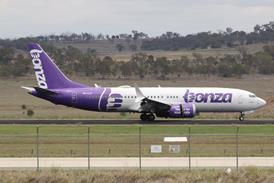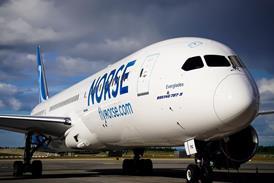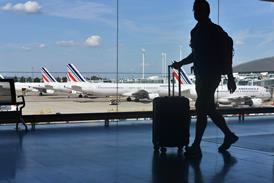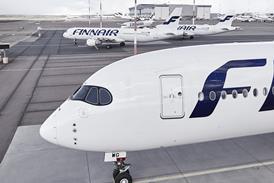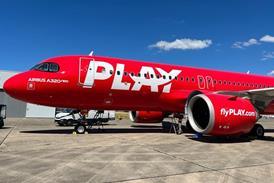MARIA WAGLAND / DUBLIN
Government plans regional control for airports and wants to divest its stake in Aer Lingus, but when and how is undecided
Ireland's aviation industry is preparing for a major restructuring as its government revisits plans for private investment in Aer Lingus and the devolution of its airports to regional control.
Plans to privatise the national carrier were shelved last year when poor market conditions after 11 September made it difficult to launch a trade sale or initial public offering (IPO).
Even before last year's terrorism, the carrier faced financial problems following a series of strikes, foot and mouth disease in the UK and the economic downturn, which resulted in a c140 million ($136 million) net loss for 2001. The result forced the carrier to embark on a survival plan to return to profitability. The plan has involved redundancies, fleet rationalisation through the return of leased aircraft and the sale of aircraft, and early-retirement programmes.
Suggestions that Aer Lingus is set to report an operating profit for this year have reopened talks on private investment options for the carrier, says recently appointed Irish minister for transport Seamus Brennan. Aer Lingus chief executive Willie Walsh has revealed that the airline forecasts an operating profit of c40 million for the year to 31 December 2002, ahead of the target in its survival plan. Brennan is due to discuss privatisation options with the airline's board this week.
The minister is avoiding talk of privatisation and is instead focusing on funding options for Aer Lingus. The government plans to divest its 95% shareholding in the carrier, but the timing remains unclear. Brennan does not rule out a trade sale or an IPO, but union leaders say the government's way forward is to reduce its holding in Aer Lingus by diluting its shares.
Airline employees own 5% of Aer Lingus and under an employee share option scheme (ESOP) they hope to increase this to 14.9%. Union leaders are close to completing legal discussions on the ESOP, which was agreed partly in exchange for employees signing up for the survival plan. Unions want to ensure that if the government dilutes its holding, employees would still be left with 14.9%.
General secretary of trade union Impact, Seamus Cody, says: "ESOP talks are almost finalised with a satisfactory outcome. The company is indicating that it will be at a profit this year and that this will lead to bringing in an investor."
The government is also implementing a new plan for its airports, which will see greater autonomy for the regional airports at Cork and Shannon to foster more competition. Both airports, along with Dublin, are controlled by state-owned airport operator Aer Rianta. The transport minister is considering removing control from Aer Rianta in favour of regional state control for the western and southern gateways.
Not surprisingly, Aer Rianta is not in favour of the move. Chief executive John Burke says: "It is certainly going against the trend...it doesn't make a lot of sense [to separate airport ownership]."
Aer Rianta had postponed any development plans for the two regional airports until the government had decided on control, but it has committed to traffic incentive schemes despite uncertainty about its future. Shannon needs to boost its traffic levels. It is the only airport of the three that has seen traffic fall during the past nine months - down 4% from last year at 1.9 million passengers, despite having a terminal capacity of 4 million. In contrast, Cork is bursting at the seams with traffic levels of 1.5 million passengers for the first nine months of 2002 exceeding its 1.2 million capacity.
Aer Rianta's c130 million expansion plan for Cork remains at the tender stage while the government decides on the ownership issue. Brennan has reassured local government it will continue to support the planned investment in Cork.
The government is also waiting to hear from interested parties on its proposal to open a private terminal at Dublin Airport to meet low-cost airline demand. Proposals are due by the end of this month. Aer Rianta, however, maintains that a private terminal will not work. Burke argues: "It failed in Toronto, Zurich and Brussels. It was considered for Terminal 5 at Heathrow and it was decided it is not in the public interest."
He believes it will be difficult for the government to find potential investors who want high margins because of high costs associated with running the terminal and the restrictions on airport charges set by regulators. Aer Rianta has previously locked horns with Irish low-fare carrier Ryanair over low-cost facilities at Dublin and airport charges, but it has bowed to political pressure to better cater for the booming low-cost sector. Aer Rianta is going ahead with its own plans to open up the low-cost facility Pier D that will include 12 new contact stands, with a target completion date of 2004. Meanwhile, the airport is building a temporary facility for low-cost carriers, to be in place by May 2003.
Dublin Airport development continues, with Aer Rianta planning to expand the terminal's 20 million capacity to 30 million to meet 20-year growth forecasts.
Burke says future expansion will depend on the source of investment. He expects the government will revisit the option for a share sale of Aer Rianta that was put on hold last year.
Source: Flight International

